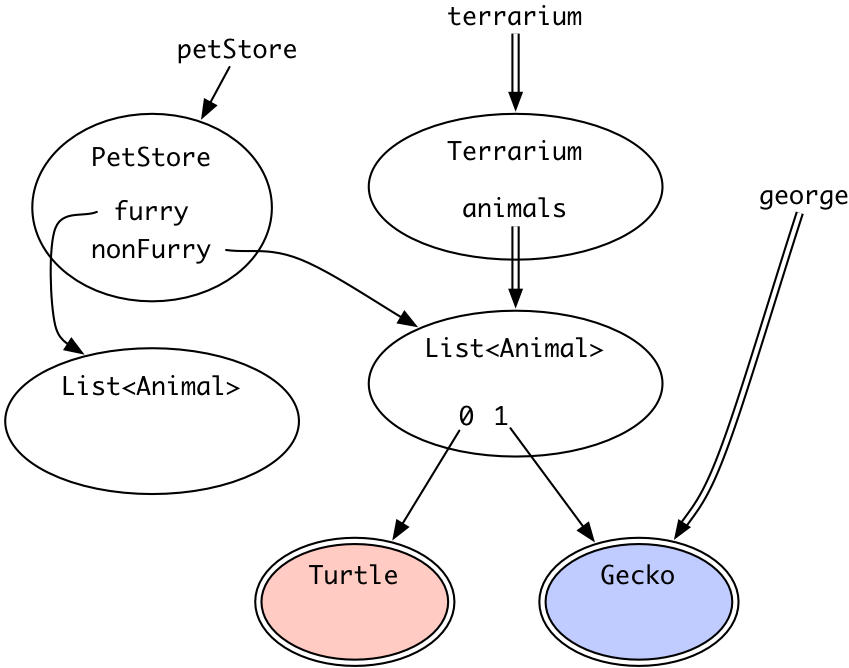Why Are Strings Immutable in Java? Best Practices and Usage Instances
Why Are Strings Immutable in Java? Best Practices and Usage Instances
Blog Article
What Is Unalterable Strings and Just How It Functions
In the realm of programming, recognizing the concept of unalterable strings is paramount for creating safe and secure and robust applications. Unalterable strings refer to strings that can not be altered after they are created, ensuring information honesty and predictability within the code. This basic concept plays a vital function in various shows languages and offers an one-of-a-kind technique to dealing with data. By exploring the details of exactly how unalterable strings operate, one can discover a globe of benefits and opportunities that can elevate the top quality and efficiency of software growth.
The Fundamentals of Immutable Strings
Immutable strings, as an essential principle in programming, are personality sequences that can not be altered once they are produced. This suggests that once a string is assigned a value, that value can not be changed. In languages like Python and Java, strings are unalterable things, causing numerous effects in terms of memory management and data stability.
One of the key benefits of unalterable strings is that they give a feeling of protection in information adjustment. Since the web content of an unalterable string can not be changed, it makes certain that the initial information stays undamaged, minimizing the danger of unintended adjustments throughout program execution (Why are strings immutable in Java?). This building likewise streamlines debugging processes, as designers can rely on that when a string is specified, its worth will not be accidentally altered
Moreover, unalterable strings help with reliable memory usage. When a new string is produced based on an existing one, instead of modifying the initial string, the new worth is stored individually. This technique boosts performance by reducing memory fragmentation and simplifying memory allotment processes. Overall, comprehending the fundamentals of immutable strings is essential for understanding programs concepts and maximizing code efficiency.
Benefits of Unalterable Strings
Building upon the security and effectiveness benefits of unalterable strings, their benefits encompass improving code dependability and streamlining simultaneous programming jobs. By being immutable, strings can not be changed after development, which gets rid of the danger of unintentional changes in the information they store. This inherent immutability ensures that once a string is produced, its value remains continuous throughout the program's implementation, reducing the chances of insects brought on by unforeseen changes.
In addition, immutable strings contribute to code dependability by making it simpler to reason concerning the state of a program. Considering that strings can not be changed, developers can rely on that a string will certainly constantly hold the exact same worth, streamlining debugging and maintenance efforts. This predictability leads to more reliable and secure codebases.

Implementation in Programs Languages
Within different programming languages, the consolidation of immutable strings is an essential aspect that impacts just how information is dealt with and adjusted within code structures. The application of unalterable strings varies across various programs languages, with each language supplying its own mechanisms to sustain this idea.

On the other hand, languages like C and C++ do not have integrated support for unalterable strings. Programmers in these languages need to manually execute immutability news by imposing guidelines within their code to avoid straight alterations to string things.
Ideal Practices for Working With Unalterable Strings
When managing unalterable strings in programs languages like Java and Python, adhering to ideal practices ensures secure and reliable information manipulation. One of the vital ideal practices is to make use of StringBuilder or StringBuffer as opposed to straight manipulating strings, especially when dealing with substantial concatenation operations. These courses give mutable options for string adjustment, assisting to prevent unneeded memory allotments and boosting performance.
An additional best method is to make use of string interpolation or formatting works given by the language instead of hand-operated concatenation. This not only improves readability however additionally help in preventing usual challenges such as unintentional string modifications. Furthermore, when collaborating with sensitive data such as passwords or API tricks, it is important to stay clear of saving them as plain text in immutable strings. Utilizing protected storage mechanisms like char varieties or specialized libraries for taking care of delicate info helps reduce security threats related to immutable strings.
Real-world Applications and Examples
Checking out useful implementations of immutable strings in various sectors reveals their significant influence on data stability and system dependability. In the health care industry, immutable strings play an important duty in making certain the protection useful reference and discretion of person information. By preventing unauthorized modifications to delicate details such as medical records and prescriptions, unalterable strings assist maintain compliance with stringent privacy guidelines like HIPAA.
Economic institutions likewise take advantage of the immutable nature of strings to boost the protection of client information and transaction documents. Unalterable strings help prevent scams and unapproved changes to monetary information, supplying a durable defense against cyber dangers and guaranteeing the trust and self-confidence of customers.

Conclusion
Best practices for functioning with immutable strings include staying clear of straight adjustments and making use of techniques that return brand-new string objects. Real-world applications of immutable strings include data security, caching, and string control jobs.
Immutable strings refer to strings that can not be altered after they are produced, ensuring data stability and predictability within the code. When a brand-new string is created based on an existing one, rather than changing the original string, the new value is stored independently.In languages like Java and Python, strings are immutable by default, suggesting that when a string object is developed, its worth can not be changed - Why are strings immutable in Java?. Ideal methods for working with unalterable strings include preventing direct modifications and utilizing methods that return new string things. Real-world applications of unalterable strings consist of information encryption, caching, and string control jobs
Report this page